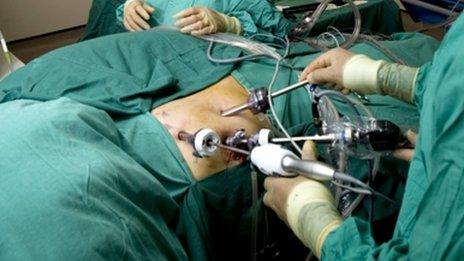Wales' bowel surgery death rate 'higher than expected'
- Published
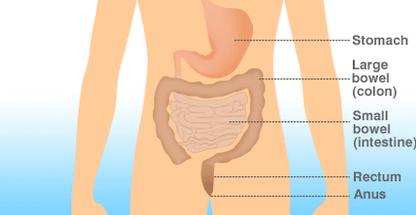
Bowel cancer is the third most common cancer in Wales
The number of bowel cancer patients dying after surgery in Wales appears to be higher than expected, new figures published on Monday suggest.
The study found that after two years 27.5% of Welsh patients had died, compared to a combined rate for England and Wales of 24%.
The Health and Social Care Information Care (HSCIC ) said the difference could be due to less detailed Welsh data.
Earlier this year, Wales showed the biggest increase in cancer survival.
For the most recent figures the national audit of bowel cancer surveyed more than 78,000 colorectal cancer patients.
More than 2,000 people are diagnosed with bowel cancer each year in Wales.
Bowel cancer, also known as rectal, colorectal or colon cancer, is the third most common cancer in Wales.
In Wales, a national bowel screening programme offers a test kit to men and women aged between 60 and 74 to help with early diagnosis of any problems.
It aims to reduce the number of bowel cancer deaths by 15% by 2020.
The HSCIC said the way information was recorded in Wales meant it was difficult to assess whether higher death rates were due to other factors, such as patients having other life-limiting illnesses.
"There are many potential explanations for variation in two year mortality, including differences in patient characteristics, differences in the completeness and accuracy of data submitted, and differences in the quality of care for people with colorectal cancer, both before and after surgery," said consultant surgeon Nigel Scott, the study's clinical lead.
"We will investigate these potential causes in further detail in next year's National Bowel Cancer Audit."
- Published14 December 2014
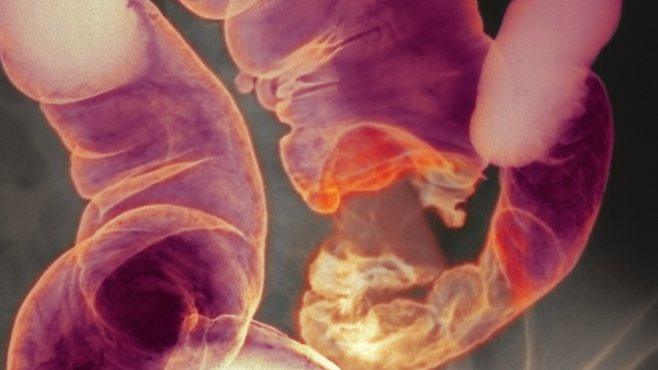
- Published3 February 2014
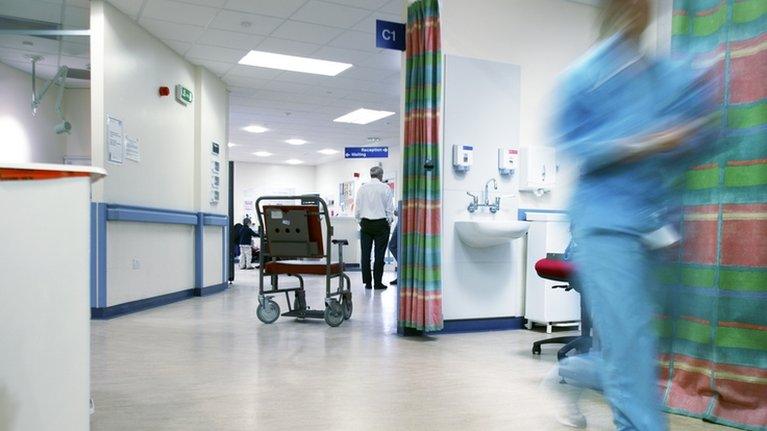
- Published28 May 2014
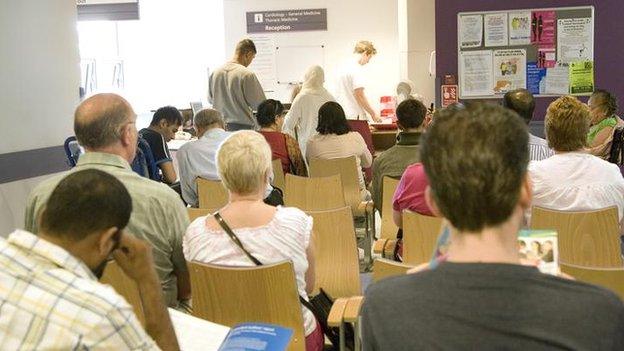
- Published5 November 2014
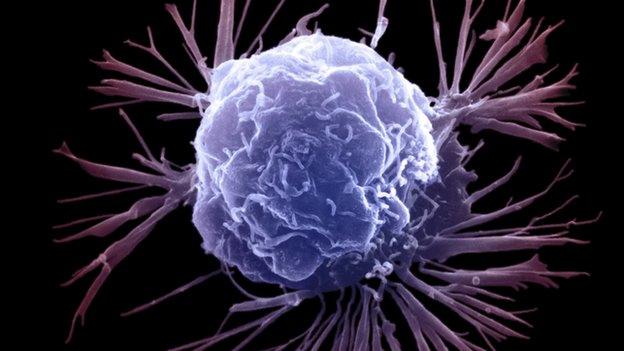
- Published2 April 2013
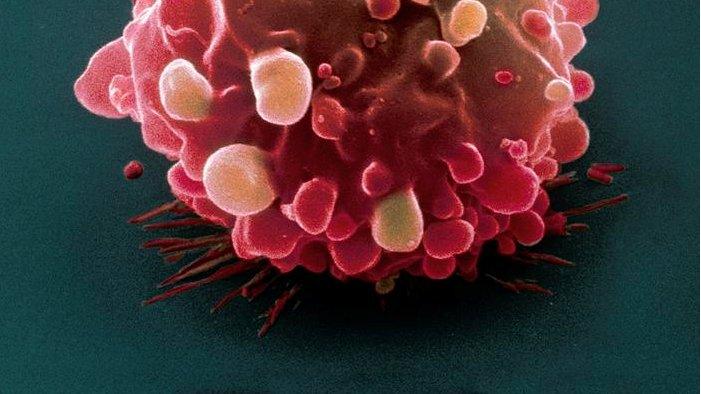
- Published16 May 2013
